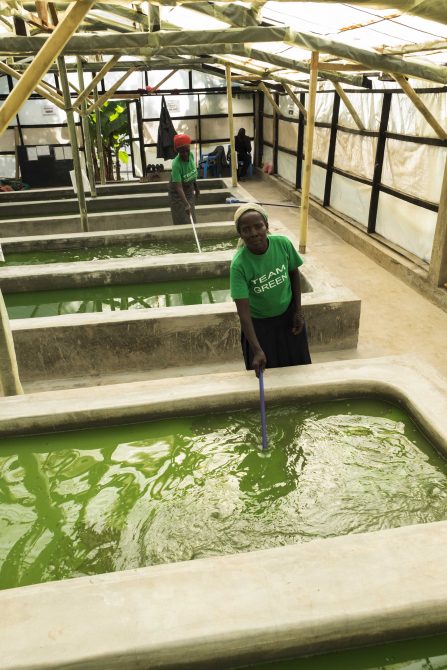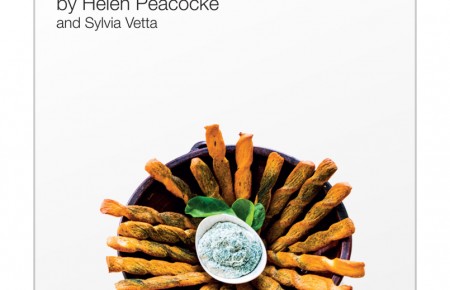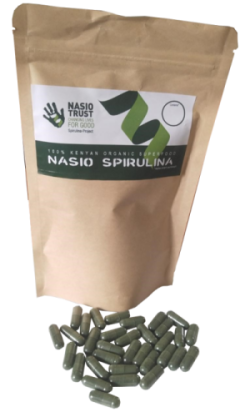Spirulina Production Farm
The Nasio Trust’s Spirulina Farm was funded with support from the Kennington Overseas Aid organisation. Spirulina is one of the world’s most popular food supplements.
Spirulina is an algae, consumed when dried, that is considered to be one of the world’s most popular food supplements. With an extremely high protein content, spirulina is transforming lives. Humans have consumed spirulina for a long time – Aztecs in Mexico cultivated blue-green algae from local lagoons to produce cakes over 600 years ago.
Today, our farm produces spirulina to maintain the health of the children & communities we support in Western Kenya, and to sell and create income to help break the cycle of poverty in our communities.
Why Spirulina?
Overcoming Malnutrition
Spirulina is now an essential element of the meals at our Early Childhood Development Centres. Being exceptionally rich in protein (up to 70% by weight) – nearly 3 times as much as meat and fish – spirulina is a veritable superfood that is revolutionising how people tackle hunger and malnutrition. Spirulina also contains high amounts of B vitamins (boosts metabolism), vitamin E (maintains healthy skin), vitamin K (heals wounds), vitamin C (forms blood vessels), vitamin A (maintains eyesight), and many more!
Clinical officers at The Nasio Trust’s medical centre monitor patients presenting with malnutrition and provide them with spirulina supplements to improve their health status.
Income Generation
Sale of powdered spirulina and tablets to stores locally in Kenya as well as the sale of our spirulina culture is an additional source of income for the charity. This helps maintain the ponds and ensures their sustainability over time. The project also creates employment for local people from the community so that they can support their families.
Other Health Benefits
Boosts immune system
Spirulina has been shown to have anti-oxidative properties. Oxidation in cells damages DNA, contributing to diseases such as cancer. Phycocyanin is rich in spirulina and reduces oxidative levels in cells by removing dangerous chemicals.
Lowers obesity
Obesity is the main contributor to cardiovascular disease, the second biggest cause of death in Kenya, and since 1994, obesity rates among women have quadrupled. Spirulina lowers obesity by reducing bad cholesterol (LDL) – as little as 1g a day lowers fat by 16% and bad cholesterol by 10% after 3 months. This helps with weight loss and reduces the risk of obesity.





